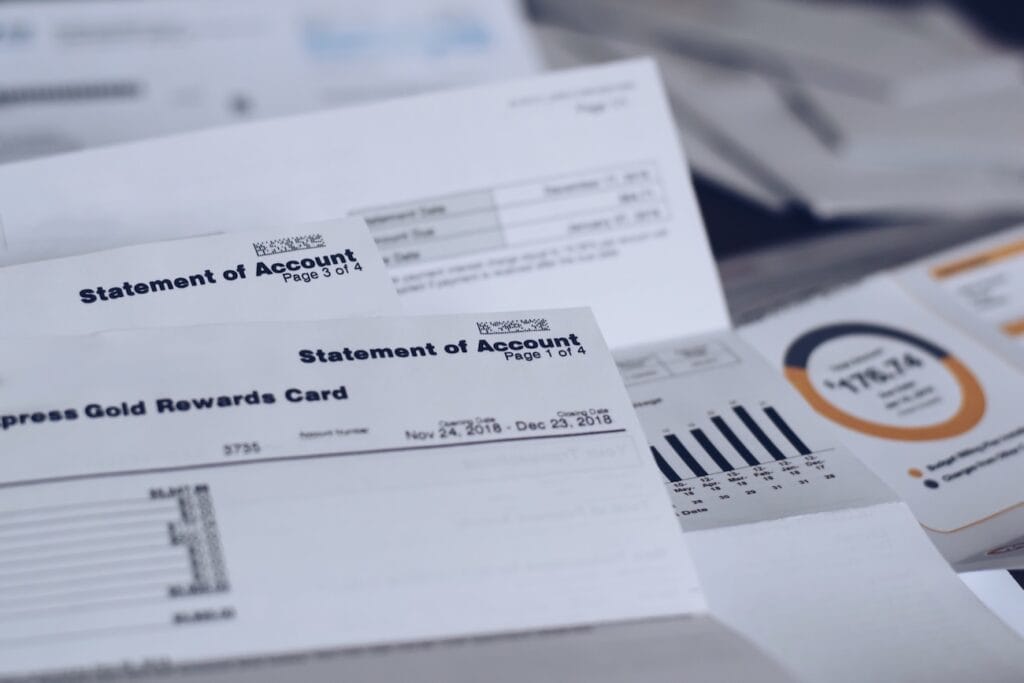Swiss numbered accounts have captivated the public imagination for decades. Often depicted in movies and media as the ultimate vehicle for clandestine wealth, these accounts—identified by a number or code name rather than the holder’s identity—have been associated with secrecy and exclusivity. However, modern banking regulations, technological advances, and international pressures for transparency have changed how these accounts work.
In this comprehensive guide, we’ll dispel myths, clarify the facts, and explain how Swiss numbered accounts fit into the broader landscape of Swiss bank secrecy, Swiss banking regulations, and global AML/KYC compliance. If you’re searching for a deeper understanding of “Swiss numbered bank accounts” or pondering whether “anonymous Swiss accounts” still exist, read on for a user-friendly, up-to-date overview.
What Are Swiss Numbered Accounts?
A Swiss numbered account is a specialized bank account identified primarily by a unique code—often a set of numbers or a word like “Cardinal” or “Octopus”—instead of the account holder’s real name in day-to-day bank documentation. This structure limits internal access to the holder’s identity, providing an extra layer of privacy. However, it’s crucial to note that these accounts are not truly anonymous; Swiss banks must always know the true identity of their customers.
A Brief Historical Overview
Swiss numbered accounts rose to global prominence in the early 20th century. During World War I and the interwar years, political and economic turmoil in Europe pushed wealthy individuals to secure their assets in neutral Switzerland. Over time, the country’s reputation for reliability, Swiss bank secrecy, and stability turned it into a preferred destination for international capital.
The 1934 Swiss Banking Law
In 1934, Switzerland enacted a landmark banking law that criminalized the disclosure of client information. This move cemented Switzerland’s role as a privacy-focused banking hub and formally codified the concept of numbered accounts. Yet from the beginning, the law also required banks to identify the actual owner of each account, ensuring banks themselves always knew who was behind each numbered code.
Myth vs. Fact: Separating Fiction from Reality
Swiss numbered accounts are often romanticized in popular culture. Below is a concise table summarizing common misconceptions versus the modern reality.
| Myth | Fact |
|---|---|
| 1. Swiss numbered accounts are fully anonymous. | Banks must know every client’s identity, even for Swiss numbered accounts. Confidentiality is stricter internally, but not absolute. Authorities can access identity details if a legitimate legal request is made. |
| 2. They are only for the ultra-wealthy or criminals. | Numbered accounts are accessible to a range of clients who meet the bank’s due diligence requirements. Rigorous background checks discourage illegal activities, but legitimate high-profile individuals may still seek discreet accounts. |
| 3. Transfers from Swiss numbered accounts are untraceable. | All international transfers, including those from numbered accounts, must include sender and beneficiary details. Swiss banking regulations require the source of funds to be transparent, especially under AML regulations. |
| 4. Swiss banks never cooperate with foreign authorities. | Switzerland participates in global cooperation initiatives. Under frameworks like the Automatic Exchange of Information (AEOI), Swiss institutions share account data with other nations’ tax authorities when required by law. |
| 5. Opening a Swiss numbered account is too difficult. | Although more complex than opening a standard bank account (due to intense KYC checks), it’s still achievable. Many Swiss banks now offer streamlined digital onboarding solutions, easing the process. |
| 6. Swiss numbered accounts have not adapted to modern banking trends. | Swiss banks have embraced digital platforms, multicurrency accounts, and mobile apps. They operate under the same or stricter global regulatory frameworks as banks in other top-tier financial centers. |
Modern Regulations and Transparency
In recent years, international bodies and government authorities have increased scrutiny on offshore banking, Swiss bank secrecy, and cross-border financial transactions. This push toward transparency has significantly impacted the way Swiss banks handle numbered accounts.
AML, KYC, and AEOI
- Anti-Money Laundering (AML): Swiss institutions are subject to strict AML rules under Article 305bis of the Swiss Criminal Code and the Federal Act on Combating Money Laundering (AMLA).
- Know Your Customer (KYC): Banks must thoroughly vet new clients, verifying personal and financial backgrounds to rule out criminal activities.
- Automatic Exchange of Information (AEOI): Switzerland shares financial account information automatically with numerous countries under the OECD’s Common Reporting Standard (CRS). This collaboration reduces the possibility of hiding assets offshore undetected.
Beneficial Ownership and Global Cooperation
- Beneficial Ownership: Banks must identify the ultimate beneficial owner of assets, preventing the use of shell companies to conceal identities.
- International Frameworks: Organizations like the Financial Action Task Force (FATF) establish AML/CTF (Counter-Terrorist Financing) standards worldwide. Swiss banks comply with these directives to maintain their global reputation.
- FINMA Oversight: The Swiss Financial Market Supervisory Authority (FINMA) enforces these regulations, ensuring that banks uphold transparency in every aspect of their operations.
Easy Global Banking in Switzerland
Despite the perception that Swiss accounts are complex or secretive, technological advances and international collaboration have made Swiss banking more accessible than ever. Many banks offer services specifically tailored for expatriates, international entrepreneurs, and investors seeking to diversify portfolios worldwide.
Digital Onboarding and Accessibility
- Online Applications: Prospective clients can often begin the account-opening process online. They upload identification documents, financial statements, and proof of residency through secure portals.
- Video Conferencing: Some banks allow video calls for remote verification, cutting down the need for in-person visits.
- Account Management Tools: Once opened, accounts typically include robust online dashboards, mobile apps, and notifications, enabling users to manage multiple currencies, make international transfers, or monitor investments in real time.
Costs, Fees, and Timelines
While Swiss banks aim to be transparent, it’s important to note that numbered accounts often come with higher annual fees than standard accounts. This premium covers enhanced privacy, tighter security protocols, and the specialized handling of client information.
- Initial Deposit Requirements: Many Swiss banks require a minimum deposit, which can range from CHF 100,000 to CHF 5 million or more, depending on the institution and account type.
- Compliance Checks: Because of AML/KYC regulations, approval may take several weeks (and in some cases, months) as the bank thoroughly checks the origin of funds.
- Ongoing Fees: Clients may pay fees for account maintenance, transaction costs, currency conversions, and wealth management services. Always clarify fee structures beforehand.
Practical Steps to Open a Swiss Numbered Account

Opening a Swiss numbered account has become more streamlined, but it still involves several important steps:
- Choose a Reputable Swiss Bank
Research banks known for strong compliance and a history of working with international clients. Visit their websites or call their customer service lines to confirm they offer numbered accounts. - Initial Consultation
Contact the bank to discuss your specific needs, estimated deposits, and any special services (e.g., wealth management, multicurrency accounts, investment advisory). This is also the ideal time to ask about fee structures and timelines. - Submit an Application
Most banks will require:- Valid identification (passport, driver’s license, or national ID).
- Proof of address (utility bills, rental agreements, etc.).
- Documentation of the origin of funds (bank statements, financial records, or tax returns).
- Tax identification numbers, where applicable.
- Undergo KYC and AML Verification
The bank will verify your documents and background. This can include open-source checks, reference letters, or questionnaires about your professional or business activities. - Account Approval and Number Assignment
If approved, the bank assigns a unique number or code name for your account. Only designated bank officers can match that code to your identity, preserving internal privacy. - Fund the Account
You can deposit funds via wire transfer or other approved methods. Expect to provide paperwork indicating the source of the funds, especially for large amounts. - Manage Your Account
Utilize the bank’s online or mobile platforms to handle day-to-day transactions. For specialized services—like complex asset management—your dedicated account manager will offer personalized assistance.
FAQ: Common Questions About Swiss Numbered Accounts
Conclusion: Embracing Privacy Within Regulation
Swiss numbered accounts once symbolized an era of secrecy and exclusivity. Today, they represent a more nuanced concept: regulated privacy. Robust Swiss banking regulations ensure that these accounts comply with global AML, KYC, and beneficial ownership standards. At the same time, they still provide enhanced confidentiality for high-profile clients or those who value a layer of discretion in a legally compliant framework.
With digital onboarding options, international collaborations, and user-friendly platforms, Swiss banks have successfully adapted to the modern world of easy global banking. Whether you’re an expatriate managing assets across continents or an investor seeking diversification in a politically stable environment, a Swiss numbered account might be an attractive option—provided you’re prepared for thorough compliance checks and higher fees associated with personalized handling.
Resources:
- The Swiss Criminal Code contains provisions against money laundering (Articles 305bis and 305ter)
- The Federal Act on Combating Money Laundering and Terrorist Financing (AMLA) and its Ordinance (AMLO) provide the legal basis for AML measures
- The Swiss Financial Market Supervisory Authority (FINMA) has issued an Ordinance on Combating Money Laundering and Terrorist Financing in the Financial Sector (AMLO-FINMA)






